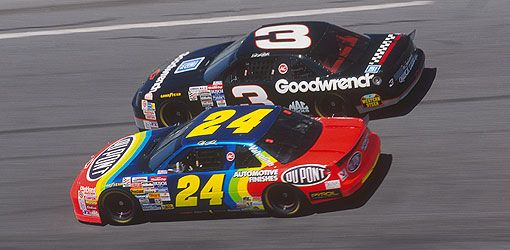The only race Denny Hamlin failed to finish his rookie season was one at Martinsville Speedway. Midway through the event, he found himself locked in a ferocious battle for position with Mark Martin, and the veteran was getting tired of it. Martin ran into the No. 11 car, cutting one of Hamlin's rear tires. Hamlin spun out trying to cause a caution, but only served to back into the wall and end his afternoon.
The next day, the two spoke on the telephone. Martin had one question -- at that point in the race, with so much of a 500-lap event still ahead, why were you running me that hard?
"I was like, 'I don't know, to be honest with you,'" Hamlin said. "But I feel like all the mistakes I've made, I've at least made a conscious effort to try to correct them or learn from them. I think that's the biggest difference people have seen from the guys that are like that today versus back in the days. Sure, everyone had a little wild hair in them at some point in their career, but they got over it and they were a little more humble about it."
The recent brouhaha between Carl Edwards and Brad Keselowski illustrated something that's commonplace in NASCAR -- young drivers entering the sport's premier series, racing perhaps more aggressively than they should, and eventually being reminded of their place by a more veteran competitor. In Keselowski's case, that teachable moment turned terrifying when a retaliatory tap from Edwards sent the No. 12 car flipping into the air three weeks ago in Atlanta. The incident landed Edwards on three weeks' probation, and prompted a peace summit between the two drivers, their car owners and NASCAR executives last weekend at Bristol.
But strip away the spectacular, remove the drama, and you essentially have something that's repeated itself for years -- an older driver trying to teach a younger one a lesson. Not even a future four-time series champion was exempt from that process.









